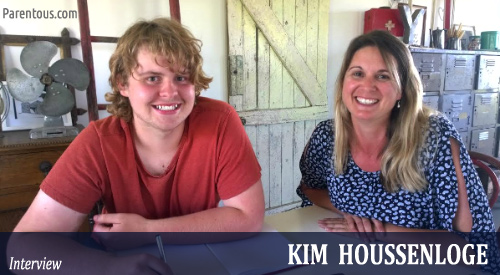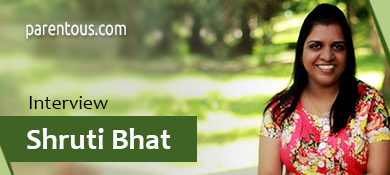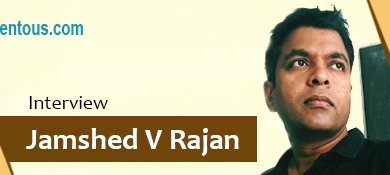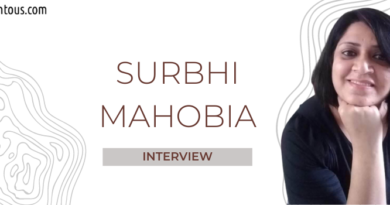An Interview With Kim Houssenloge
Parentous is back with an interview with an inspiring mother and blogger who has been documenting her adventurous life through her blog ‘Feather and Nest’. Living in a cosy house in the Australian countryside, Kim Houssenloge spends her days feathering (read decorating) her nest (read home), gardening and unschooling her teenage son. She’s got the most unique outlook towards life which is both intriguing and infectious, and a lot of insight on motherhood; insight that we could really gain from. Just a glance at her blog, and you’ll realise, it’s truly a privilege that she gives you a peek her beautiful world!
In an exclusive interview, Kim Houssenloge walks us through life in her nest, the challenges and benefits of taking the road less travelled, motherhood and the her incredible blogging journey..
Q. How did the idea of Feather and Nest come to you?
Feather & Nest came about after I had completed a course in interior decorating. I had this mad passion to write about my obsession with all things homey and our life in general. I had already begun blogging back in 2006. It was a blog that I started to share the life and times of my son, Lewi, and his unschooling journey. I wanted to document his life and when one day I came across blogging, I thought a blog would be the perfect medium for that.
The actual name Feather & Nest came from my love of feathering and nesting. The nest of a bird is a safe, cosy, nurturing place where parents and children dwell together. Feather or the feathering part has to do with decorating the nest.
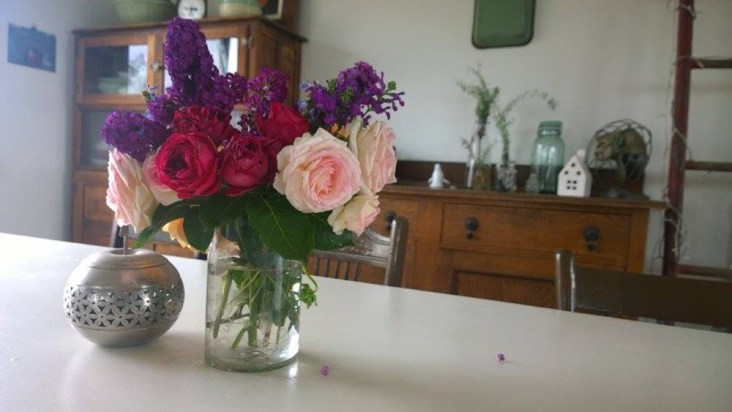
Q. How would you describe your 9 year long journey of blogging?
It’s been a lovely journey actually, where I’ve made some wonderful connections and friends in an online setting. I’ve gone from knowing absolutely nothing about blogging to gradually getting the hang of it and doing a couple of online courses to better my blogging skills. At the moment I am dedicating quite a bit of time to my blog as I would like to see it grow and develop into a more substantial business. There would be nothing better for me than earning an income from doing something that I absolutely love.
Q. You blog about a variety of topics – from your nest, personal updates, unschooling, etc. What do you enjoy blogging about the most?
Hmmm…that’s a tricky one. I love blogging about my son’s unschooling journey and I particularly love reading past blog posts and remembering the times when he was younger. These days he’s not so keen for me to talk about him online so it makes things a little tricky as there are so many things that he does that I would love to share, particularly his art work.
Probably one of my favourite things to write about are the stories about other people and their nests. I love talking to people about their homes and I especially love sharing the more quirky feather and nesters. I love reminiscing as well, so I also really enjoy sharing the memories of my own childhood. These memories are like threads which interweave and make up the tapestry of my life which I think is really important for our children to be able to hear and have chronicled.
Q. What are the challenges you have faced as a blogger?
Sometimes, I struggle with writer’s block. That has been a frustrating part of my blogging journey. Lately there seem to be so many things to write about that I’m frozen due to too much inspiration! It’s often like this. I think a lot of writers face the same issues.
Q. You share some very personal things on your blog. Is it tough to walk the line between sharing and oversharing?
It sure is! This is an extremely tricky area. I love to share raw feelings and be as real as I can, but I am also acutely aware of the impact this can have on others, particularly those involved. I try to be as real as I can without being too negative whilst respecting the needs of others.
Q. What does a typical day in your nest look like?
That’s a tricky question, because every day can be so different. I unschool my 16 year old son, Lewi, so most days he has an activity on or friends to get together with. On the days when we are at home, Lewi spends them doing a range of activities linked to his interests at the time. Lately, he spends a fair bit of time researching vegan diets and quite a few philosophical topics of interest. He loves to draw and would like to pursue a career using his art so he spends quite a bit of time each day drawing and sketching. He likes to game and spend time on his iPad and he also follows an exercise regime of walking and weight training.
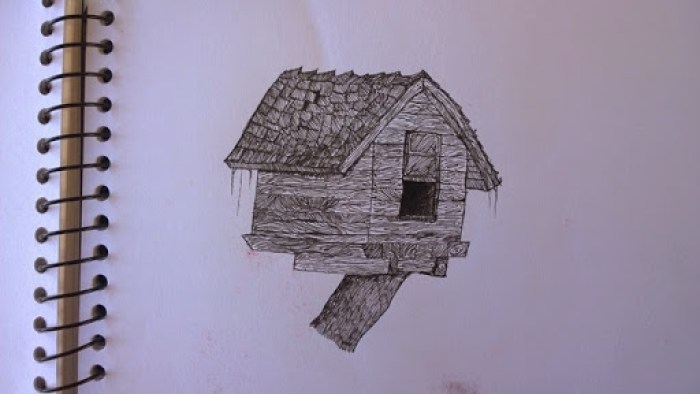
He’s been working on a movie that he’s making with some homeschooling friends, so most days are spent working on the script, coming up with ideas for costumes and special effects, researching different filming concepts and liaising with his friends over whatever aspect of the movie they are working on at the time. He is extremely self-directed, so, I am really there now as a facilitator of his environment – making sure he has access to resources, people and opportunities that will accommodate his learning.
So, I’m available to Lewi throughout the day and in between that I spend my time working on my blog, writing, gardening, preparing meals; homey stuff that needs doing. I’m finding that I have a little more free time to pursue my writing these days, although the garden is suffering because of it. I struggle at times to balance my time well, but I’m working on it. 🙂
Q. At a time when most people are living the busy life in cities, what advantages do you think your ‘nest life’ has?
I chose to live in the country and be an unschooling mum and homey kind of person because I wanted a more simple life for my child to grow up in. I wanted to grow our food and make meals from scratch. I didn’t want to get caught up in the rush of life that most people tend to get caught up in these days. It’s not just city people. Country people struggle with it too. Kids these days seem to have so many activities and have so much on their plates and both parents tend to work so there’s not a lot of down time anymore and not a lot of time just hanging out at home. I really enjoy that part of my nesty life and I feel extremely privileged to have been able to raise my son in this kind of environment.
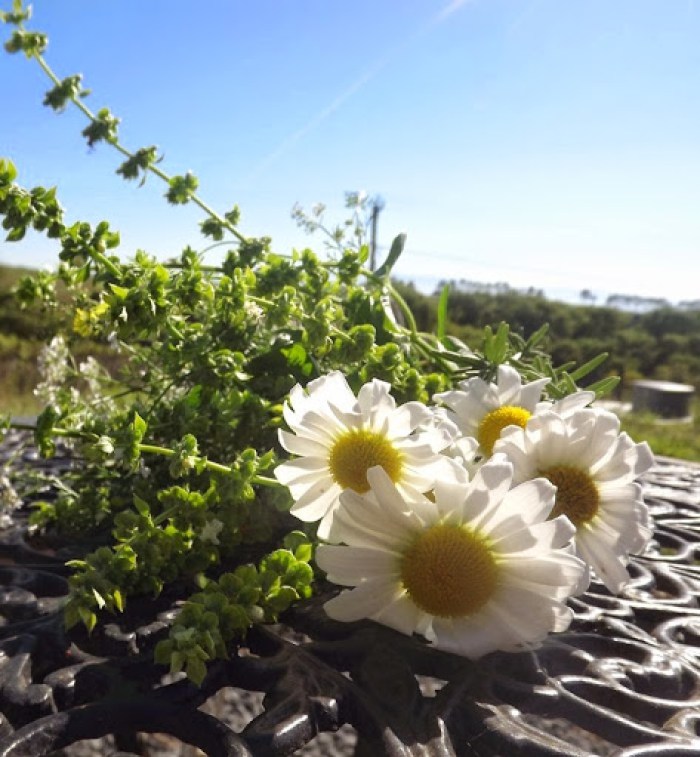
Q. Coming back to your blog, the unschooling section on your blog is really interesting. Can you tell our readers more about it?
Sure. Unschooling is a form of homeschooling which allows children to learn exactly what they need to know based on their interests and passions. It’s not prescribed learning but rather a free style of learning where the learner is totally in control of their own learning. Learning happens naturally every single day.
This section in my blog was really where my blog began – recording the unschooling days of my son’s learning journey. It is a visual as well as a written record of part of the learning he has been doing over his lifetime.
Q. How were you introduced to unschooling and are you happy with your decision to unschool Lewi?
I actually stumbled across unschooling in the early days of parenting. When Lewi was about three, I felt a bit of a panic about where I would be happy to send him to school. I knew, at that time, that I would prefer he went to an alternate school like Montessori or Steiner so I began researching my options. As a teacher of mainly state schools, I found that the needs of children in the system were really not being met and I struggled with it.
Once I became a parent the struggle became so much bigger as this time I had to think about my own child’s learning needs. I started looking into homeschooling and by the time Lewi was 4, I was tossing up whether to send him to our local Steiner school or homeschool him. I had my concerns. Then one day, totally out of the blue, I came across the wonderful Sandra Dodd’s website which introduced me to the concept of unschooling. I instantly fell in love with it and realised that it was unschooling I was searching for but I just didn’t have a name for it. From that moment on I made my decision to unschool Lewi and I have never, ever looked back. Of all of my parenting decisions this one has been the one thing that I would never change if I had to do it all over again. Unschooling fits the needs of Lewi perfectly.
Q. How easy or difficult was it to decide and how did your family/friends react to it?
Once I found unschooling, the decision was very easy to make. Explaining that decision to family and friends, however, was not so easy. Eventually, after a lot of explaining and sharing, a lot of my friends and some of my family accepted my decision and supported us. Some members of my family still don’t get it. That’s been tricky over the years but as time went on and Lewi grew, developed and learnt to read and write and be in charge of his own learning, I cared a lot less about what others thought. I started our local unschooling group when Lewi was about 5 and that has been a wonderful support network of like-minded parents and kids.
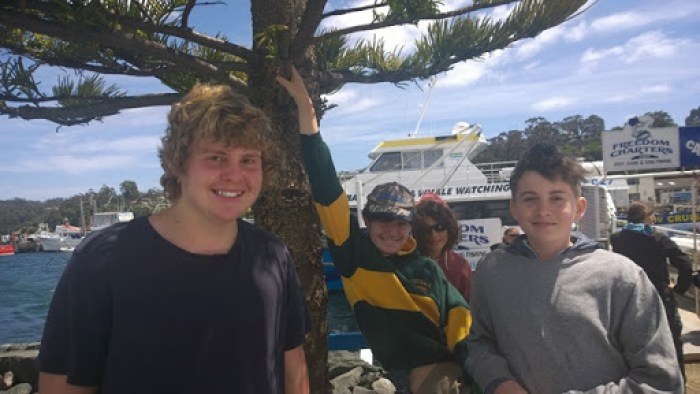
Q. Lewi has never been to school, so how do you monitor the growth in him? How do you compare his education with that of his peers?
Unschooling is not about comparing. It is about each individual child finding for themselves their own learning journey and pursuing that to whatever lengths they need to. His growth is not monitored in the normal sense of how the school system monitors a child’s learning. I never test Lewi and I never get him to regurgitate facts to me. I have been extremely present in his life from birth and so it is so very easy to know your child and see where they are growing and developing. It’s such a natural part of parenting and really, that’s what unschooling is, it’s an extension of connected parenting. I will say this though, at 16 Lewi knows a lot more than I do about politics, environmental issues, philosophical stances that societal groups have and general knowledge. I think that’s a pretty positive result of unschooling.
Q. Is there a fear of your child lagging behind as compared to his peers?
It’s natural, particularly in the early years, to have some worries about those things. There was a particular age that I found my worries the biggest, probably between the ages of 9 and 12. But thankfully I had the support of my unschooling group and a huge array of experienced unschooling parents online who had older children at the time and helped to reassure me. I find myself doing the same for others who have kids of that 9 -12 age bracket, and any age for that matter. It’s so natural to have concerns and fears about any parenting decisions we make. It’s all a bit of an experiment really, isn’t it? The most important thing for me is that Lewi comes out the other end of his childhood as a kind, compassionate, thoughtful, motivated, contented adult. Anything else is a bonus.
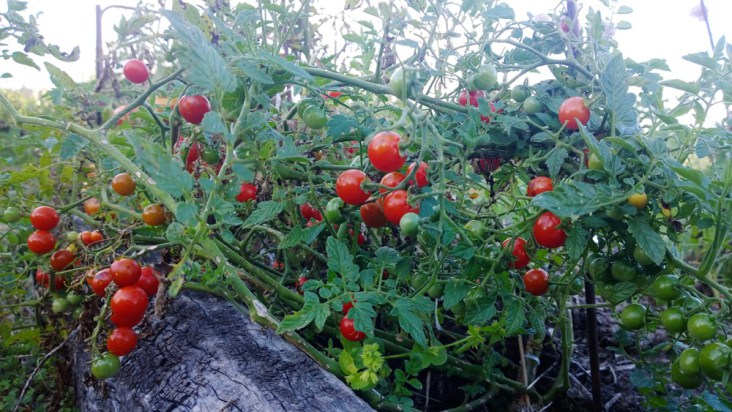
Q. What are the challenges you face from your child’s side when it comes to answering his questions about regular schooling? Do they ever arise?
I have always talked openly and honestly with Lewi. I’ve talked to him about the positives and negatives of school from my own experiences. He’s talked to lots of people about school. He has good friends who go to school. He has heard mixed feelings about school, some positive, some not so positive. There have never really been any issues with this although I have had to be fairly clear that just because he unschools doesn’t mean school is a bad thing. Some kids love school. Some don’t. Some love homeschooling. Some don’t. It’s a very individual experience and I’ve tried to help him see things from a balanced perspective.
Q. How popular is the concept of unschooling in Australia?
When we first began, unschooling was not very well known of in Australia. Over the past couple of years though, unschooling has had some media attention and is becoming a more known learning style. Unfortunately the media has also done damage in its painting of unschooling as being totally hands-off kind of learning. It is far, far from that. It is extremely hands-on as parents facilitate the learning environments of their children to best meet their child’s individual needs. My hope is that unschooling will infiltrate more into the Australian school system and make positive changes there for the children who attend schools.
Q. What are some of the misconceptions about unschooling that you’d like to debunk?
As I just mentioned, one of the main misconceptions is that children are just left to their own devices all day. That is so far from the truth. It is a very connected style of learning – parents learning alongside their children. You need to be really committed to your child’s learning if you take on an unschooling approach.
The other big misconception about unschooling and homeschooling in general is socialisation. Most people ask, ‘How does your child learn to socialise without going to school?’ Socialisation happens when children mix with other human beings from all age groups. Homeschooled kids generally interact in the real world all of the time – they go shopping with their parents, they have play dates, they attend homeschooling groups, they take part in activities such as dancing, art, sports, wood work and a multitude of other activities open to them. Socialization in the school system isn’t so perfect. The bullying issues that school kids face worldwide is enough to show that schools don’t have all the socializing answers, so I’m often left bewildered when people query the socialization aspects of homeschooled children.
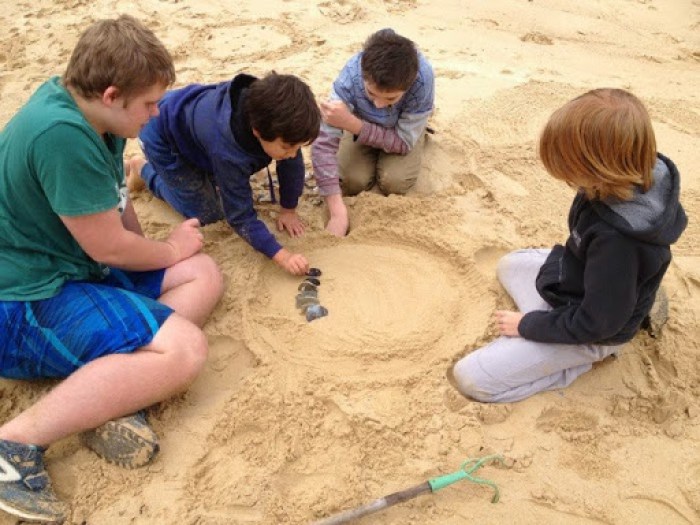
Another biggie is how on earth do children learn to read if they are not taught the traditional way? Lewi is living proof, along with most of his unschooling friends, that reading happens when children are exposed to the written language; when they are read to and have books around them; when they see adults using written material to suit their purposes, when the environment surrounding them is rich in the printed word. It really does happen naturally and usually happens once the child has a need to read for themselves. For Lewi it was a little later than other kids, he was busy learning other stuff. When he needed to read the instructions to his online games he became extremely keen to get the gist of reading. Other kids learn a lot younger. It is a totally individual thing but one thing is for sure, if kids are exposed to a print-rich environment they will learn to read.
Q. One piece of wisdom you would want to pass on to your child?
Do what it is that motivates you,inspires you and makes you happy.
Q. You recently introduced a ‘male perspective’ to your blog. What made you take that decision after so many years of blogging? Tell us about it.
Yes, that has been a really fun addition to my blog and was a really easy decision to make. I have been in a new relationship for the past 14 months which has changed my life. The love of my life, Pete, is inspiring and motivated and interesting and he happens to enjoy writing, so I thought it would be fun to have him on the blog. He’s really enjoying it and so am I and I think he adds another level to Feather & Nest that has been predominantly a female kind of blog and readership for so many years. We have lots of plans for the blog and the future and it’s a really exciting time for me. It’s time to spice things up a little. 😉
Q. Tell us your best memory with Lewi.
Too tricky to narrow memories down! LOL!
Q. Blogging is a lot of things to different people – a diary, a means of earning money or connecting with other people. What is blogging to you?
It is all three of those things. It is predominantly a record of our life which is the reason I started blogging in the first place.
A beautiful byproduct of blogging has been the connecting with other like-minded people. The blogging community is such a supportive bunch. It doesn’t seem to matter how well known a blogger is they all seem to have the time to communicate and support fellow bloggers. I’ve gained so much from this, not just in knowledge and skill with blogging, but also a great group of online friendships, some of whom I have since met in real life.
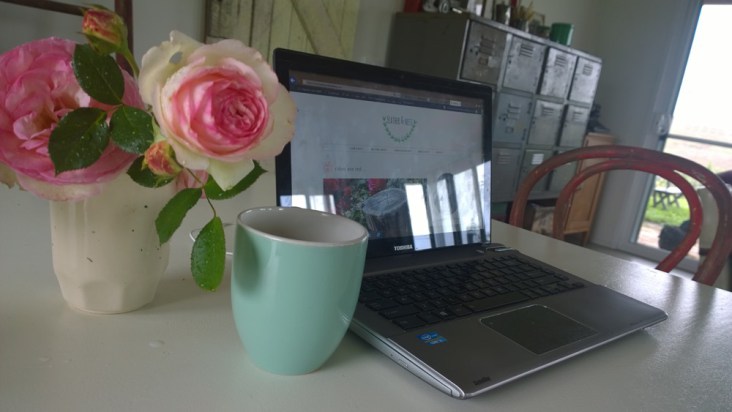
The earning money element is a little newer to me but it is a path that I am headed down right now with my blog. It gives me the freedom to do what I’m passionate about as well as spend a lot of time with my son and at home. This works in well with our lifestyle. I plan to move forward with this area of my blogging and hopefully earn a modest income from something I love to do.
Q. A blogger who gives you the inspiration to blog better?
Pip Lincolne is one of my favourite bloggers. She writes a blog called Meet Me at Mikes. She’s been a bit of a mentor to me over the years, though she has no idea about how much she has helped me. I love her empathetic style of writing and the way she connects with her audience. She is a sharer and a giver and I love that. She’s also extremely successful in doing the things that she loves. That inspires me and it’s what I encourage my own child to do in life.
Q. What is the reaction of your friends, family and child to your blogging? Do they know that they feature in it regularly?
Some are really supportive and encouraging. Others really don’t get it.The people who read it know when they feature in it. Usually their reactions are positive, thankfully. 🙂 Lewi is non-plussed about it. I guess it’s something I’ve done ever since he can remember so he’s pretty unexcited by it, though he definitely has stuff to say about it if I blog about him. I have to run most things by him before I publish a post about him.
Q. What has blogging given you as a person, blogger and a mother?
Blogging has given me a lovely platform to share our lives and record memories that we can hold on to in years to come. It gives me an outlet which writing has always done for me over my life.
Q. In a country like India which has a structured education system, how can a parent start their unschooling journey?
I am unsure of the exact legal requirements for learning in India but I imagine they are quite similar to the Australian school system. Over here children must be legally registered in a school or as home schoolers. Curriculum requirements vary from state to state and, of course, from country to country, but I’m not sure I should answer this question as I really don’t know enough about education policies.
We hope you enjoyed reading about Kim’s and Lewi’s remarkable life. Do share your thoughts in the comments below!
